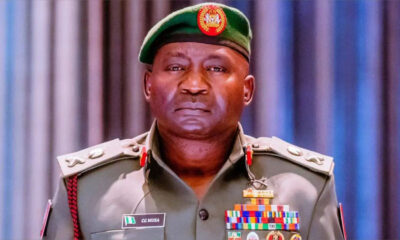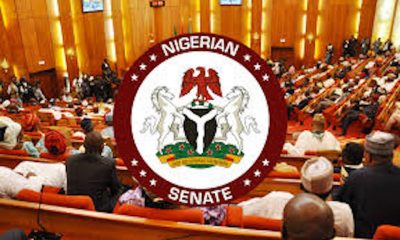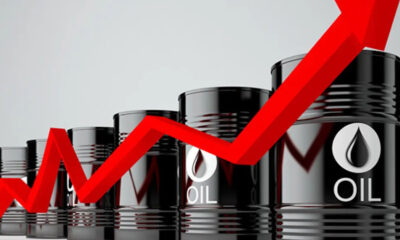News
Senate probes $1.5bn Port Harcourt refinery rehabilitation funding

Senate probes $1.5bn Port Harcourt refinery rehabilitation funding
The Senate has expressed worry over the 1.5 billion dollars granted in 2021 for turnaround maintenance at the Port Harcourt Refinery, which has yielded little or no results.
Sen. Opeyemi Bamidele, Chairman of the Senate Ad Hoc Committee to Investigate Alleged Economic Sabotage in the Nigerian Petroleum Industry, expressed his worry during an interactive session with stakeholders on Wednesday in Abuja.
Bamidele, also the Senate Leader, said punishing public firms poorly was unjust and unethical while private businesses thrived and prospered.
He noted that the Federal Executive Council (FEC) approved the Ministry of Petroleum Resources’ plan to rebuild and turn around the Port Harcourt Refinery with 1.5 billion dollars.
Bamidele voiced alarm about the malfunctioning state of government-owned refineries, despite billions of dollars spent on turnaround maintenance.
“The federation is facing a genuinely difficult phase. Our fatherland’s recent past has seen erratic and troublesome distribution and supply of refined petroleum products.
“The huge lines at gas stations are visible evidence of this difficulty.
“A situation whereby we now depend almost entirely on the importation of these products even when we daily supply the global oil market with about two percent of its crude oil requirements is worrisome,” stated the president.
He also expressed severe worry over importing dangerous petroleum products and dumping substandard fuel in the country.
READ ALSO:
- Man found guilty for sending teenage son to kill rapper PnB Rock
- British High Commission says over 430,000 Nigerians received visa approvals in 2024- NIDCOM
- Two commercial motorcyclists hacked to death in Ondo
Bamidele said that since 1999, the federal government had “invested billions of dollars to maintain and turn around the state-owned refineries in Kaduna, Port Harcourt, and Warri.” However, the refineries are not operating.
“In 2021, specifically, the Federal Executive Council budgeted 1.5 billion dollars for turnaround maintenance at the Port Harcourt Refinery. However, this investment has not produced considerable profits.
“For us in the Senate, we believe, it is unfair and unpatriotic to treat government businesses or public corporations as an orphan while private businesses are flourishing and thriving.”
He stated that the National Assembly was prepared to conduct the investigation hearing with utmost respect and responsibility.
Mr Mele Kyari, Group CEO of Nigerian National Petroleum Company Limited (NNPCL), denied allegations of sabotage against domestic refineries.
“Everyone here is aware of what is going in the media. A personal attack on my person and the institution. And we all understand how this works.
“They are deliberate and calculated. As a result, the NNPCL and our government are doing all possible to damage our country’s economy.
“It is far from that. The company has grown, and we are proud to state this. Kyari stated that the company had been losing money for 43 years before becoming profitable today.
Furthermore, Mr Heineken Lokpobiri, Minister of State for Petroleum Resources, stated that the oil industry was plagued by disinformation.
“The Senate should do Nigerians a favour by broadcasting the hearings of this committee live.
“This will do much justice not only to the Senate, but also to the executive branch and important sector leaders.
According to him, “Because of the fundamental nature of this investigation, which concerns alleged economic sabotage through the importation of substandard products into the country, we urge the Senate to ensure we do a live broadcast.”
He stated that the government was dedicated to protecting local industries and other oil-related interests.
According to the minister, “We are committed to supporting Dangote Refinery and modular refineries, and we have been resolving whatever issues they brought to our attention.”
At the investigation hearing, Mr Aliyu Suleiman, Chief Strategy Officer of Dangote Industry Ltd., stated that the refinery began full production in March.
“Since then, we’ve processed around 50 million barrels of crude. We have produced around five million tonnes of petroleum products, which have been marketed throughout the country,” he explained.
Mr Wale Edun, Minister of Finance and Coordinating Minister of the Economy, stated that increased crude oil production would help to stabilise the country’s foreign exchange market.
Senate probes $1.5bn Port Harcourt refinery rehabilitation funding
Africa
Nigeria withdraws fighter jets as Benin recovers after failed coup attempt

Nigeria withdraws fighter jets as Benin recovers after failed coup attempt
Nigeria has withdrawn the fighter aircraft it deployed in the Benin Republic following Sunday’s attempted coup, after security assessments confirmed that the situation in the neighbouring country has stabilised. Security sources said the aircraft—initially dispatched from Lagos for surveillance and regional monitoring—were recalled on Sunday afternoon when updated intelligence indicated that the crisis no longer posed “immediate threat to Nigeria’s territorial security.”
The failed coup, aimed at toppling the democratic government of President Patrice Talon, began with an early morning assault on the presidential residence in Cotonou.
Mutinous soldiers, dressed in full military uniform, attempted to seize power but were repelled by loyal forces. Unable to capture the President, the rebels proceeded to take over the Office de Radiodiffusion et Télévision du Bénin (ORTB), briefly controlling the national broadcast signal.
The crisis escalated rapidly, but the Beninese National Guard responded decisively, surrounding the television station and blocking the mutineers’ escape routes.
By late Sunday, loyalist security units had secured all major government installations, restoring order across the capital city.
READ ALSO:
- Dozen Soldiers Held as Benin Govt Thwarts Coup Against President Patrice Talon
- Benin govt says coup attempt foiled as soldiers seize state TV, gunfire rocks Cotonou
- BREAKING: Soldiers Announce Coup in Benin Republic, Declare President Patrice Talon Removed
“The situation is under control. The National Guard has everything surrounded,” a senior security official said, noting that negotiations were initiated to persuade the barricaded mutineers to surrender peacefully.
President Talon, reported safe in an undisclosed location, has yet to address the nation. Meanwhile, the streets of Cotonou remained tense but calm, with no reports of widespread violence or civilian casualties.
Presidential spokesman Bayo Onanuga confirmed in a statement on X that the coup had collapsed.
“Mutineers in military uniform who attempted to overthrow President Patrice Talon’s democratic government have failed. They seized the National TV after failing to enter the presidential residence,” he wrote.
He added that Colonel Pascal Tigri, the alleged leader of the mutiny, was on the run, while several members of the group had been apprehended.
Benin’s Interior Minister Alassane Seidou also appeared on national television, confirming that the military uprising had been foiled. “Early on Sunday, 7 December 2025, a small group of soldiers launched a mutiny aimed at destabilising the state and its institutions. The armed forces remained loyal to the republic, and their response allowed them to foil the attempt,” he said.
The Beninese government has since urged citizens to resume their normal activities, assuring the public that the security situation remains firmly under control.
Nigeria withdraws fighter jets as Benin recovers after failed coup attempt
News
Akpabio sues Natasha for ₦200bn over sexual harassment allegations
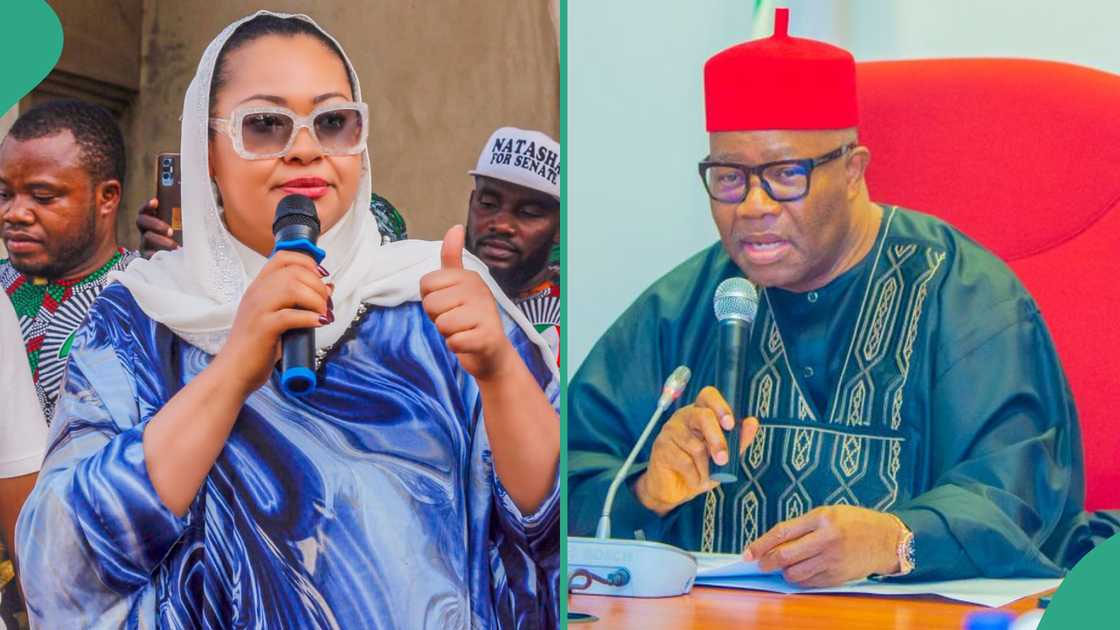
Akpabio sues Natasha for ₦200bn over sexual harassment allegations
Senate President Godswill Obot Akpabio has instituted a ₦200 billion defamation lawsuit against Senator Natasha Akpoti-Uduaghan, accusing her of spreading malicious sexual harassment allegations that he says have severely damaged his public image.
According to documents filed before the High Court of the Federal Capital Territory, Abuja, Akpabio is seeking substantial damages, public retractions, and nationwide broadcast apologies. He argues that Senator Akpoti-Uduaghan’s televised, radio, and online interviews portrayed him as a sexual predator who abused his office for personal gratification—claims he insists subjected him to widespread ridicule and reputational harm.
The lawsuit includes a comprehensive statement of claims and a list of witnesses. Akpabio is also asking the court to compel the removal of all online materials containing the disputed allegations and to order repeated public apologies across major media outlets.
READ ALSO:
- Nigeria joins global ICH elite as NAFDAC achieves full international regulatory Status
- Supreme Court Strikes Out Osun Suit on Withheld Local Govt Allocations
- DSS Arrests Doctor Providing Medical Support to Bandits in Kwara State
A court order issued on 6 November 2025 granted permission for substituted service through the Clerk of the National Assembly after initial attempts to reach Senator Akpoti-Uduaghan directly were unsuccessful. The case is now moving forward and is expected to become one of the most closely watched political legal battles in Nigeria.
Responding on 5 December 2025, Senator Natasha Akpoti-Uduaghan confirmed receipt of the suit and expressed readiness to defend her allegations before a competent court. She stated that she had previously been prevented from presenting a petition before the Senate Committee on Ethics and Privileges due to claims that a related case was already in court—an action she believes protected the Senate President from legislative scrutiny.
In a strongly worded response, the Kogi Central senator maintained that the court proceedings will finally provide the platform to substantiate her claims. She reiterated her stance that she experienced sexual harassment and that her refusal to comply with the alleged advances prompted sustained political retaliation.
“See you in court, Godswill Akpabio,” she declared.
Akpabio sues Natasha for ₦200bn over sexual harassment allegations
News
NLC threatens nationwide protests as insecurity worsens, withdraws support for Labour Party
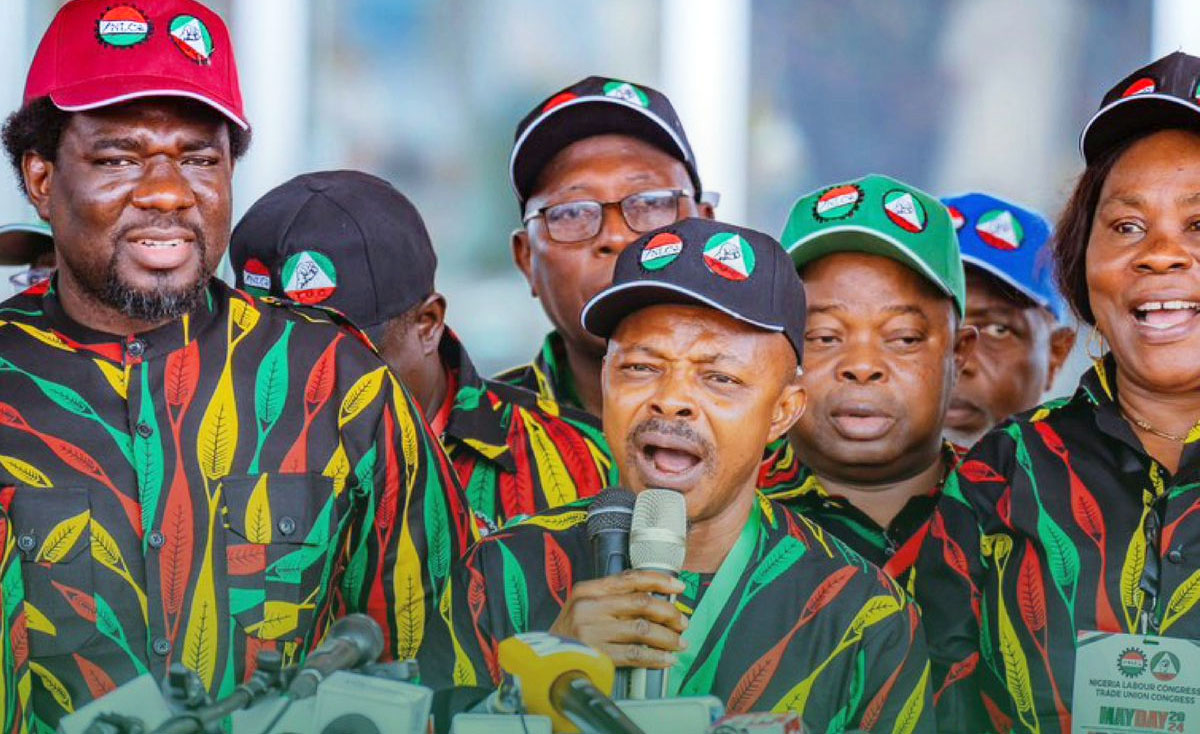
NLC threatens nationwide protests as insecurity worsens, withdraws support for Labour Party
The Nigeria Labour Congress (NLC) has warned that it will no longer remain passive as criminal gangs intensify violent attacks across the country, declaring its readiness to hold a national day of mourning and mobilise nationwide protests over the escalating insecurity in Nigeria.
Speaking at the opening of the NLC’s National Executive Council (NEC) meeting in Lagos, NLC President Joe Ajaero said the country was “under siege,” condemning the latest school kidnapping and the reported withdrawal of security personnel before the attack. He demanded a full investigation to expose any possible compromise within the nation’s security architecture.
“The NLC cannot stand idly by and allow criminals to take over our country—never again. We want to know who ordered the withdrawal of security operatives from that school. We will not allow kidnappers and bandits to overrun our nation,” Ajaero said.
READ ALSO:
- Oshiomhole Seeks Tougher Regulation of Fintech Firms After Cyber Fraud Experience
- Boris Johnson Hails Kemi Badenoch as “Future UK Prime Minister” During Visit to Nigeria
- A troubling message from Guinea-Bissau, by Azu Ishiekwene
He stressed that the labour movement would soon announce details of the planned protests and national mourning, insisting the lives of teachers, students and workers were in grave danger. “It is getting out of hand. We can no longer bear this,” he added.
Ajaero also revealed that the NLC had withdrawn its representatives from the Labour Party, accusing them of pursuing personal interests rather than representing workers.
Human rights lawyer Femi Falana, SAN, who addressed the meeting, warned that the country was in “serious trouble” over rising kidnappings and attacks. He rejected calls for foreign military intervention, cautioning that such a move would undermine Nigeria’s sovereignty.
Falana criticised recent statements by former U.S. President Donald Trump, describing them as unacceptable. He urged President Bola Tinubu to take decisive action to protect citizens, saying: “We want to let the world know that we are not a conquered people.”
He called on labour unions, civil society organisations and Nigerians to prepare to resist any further decline in national security.
NLC threatens nationwide protests as insecurity worsens, withdraws support for Labour Party
-

 Sports2 days ago
Sports2 days ago2026 FIFA World Cup Draw: England Draw Croatia as Brazil Face Morocco in Tournament Opener
-

 News2 days ago
News2 days agoAkpabio sues Natasha for ₦200bn over sexual harassment allegations
-

 metro3 days ago
metro3 days agoTinubu Govt Eliminates More Terrorists Than Previous Administrations — Fani-Kayode
-

 Politics2 days ago
Politics2 days agoOsogbo Youth Group Condemns APC Over Disqualification of Adegoke SAN
-

 metro2 days ago
metro2 days agoNigerian woman sparks outrage for refusing chemotherapy despite ₦30 million donations over religious Beliefs
-
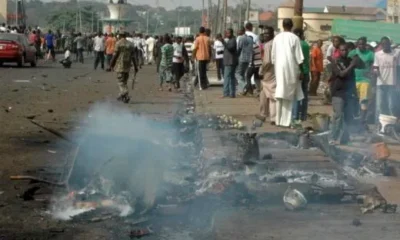
 metro2 days ago
metro2 days agoFour Teenagers Killed in Banki Explosion as Borno Police Probe Deadly IED Blast
-
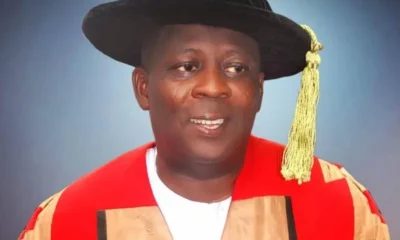
 Opinion3 days ago
Opinion3 days agoSiyan Oyeweso: Lessons in virtue and vanity
-

 metro1 day ago
metro1 day agoAkpabio denies filing new ₦200bn lawsuit against Natasha





